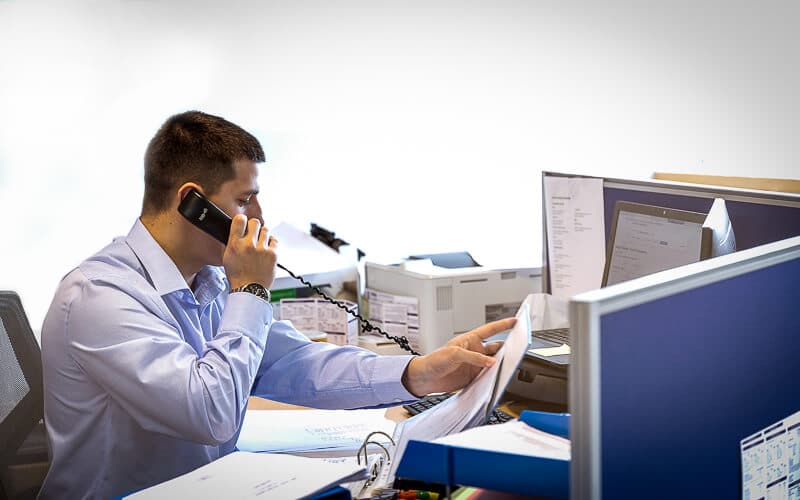The life of a freelancer is non-stop. As well as the usual 9-to-5, you also have to find time to manage everything else. That includes everything from your marketing and website to your bookkeeping and tax returns. While you may not have the budget to outsource all these extra jobs, hiring a freelancer accountant is one investment that can pay for itself – saving you precious time and money.
Managing Cash Flow As A Freelancer
The digital and creative sector has always championed freelance talent. The nature of the work has enabled highly skilled freelancers to set up on their own and work remotely, with all the freedom and creative licence that entails. However, the other inescapable side of this idyllic-sounding lifestyle is the many and varied plates a freelancer has to spin to stay afloat. Chief among them is keeping on top of bookkeeping and accounts.
Bookkeeping for freelancers can be a chore, but it is essential to any freelancer’s survival. It is vital to ensure all your invoices are fully paid up each month, that your monthly and year-end accounts are in order, and that you have enough money saved in the bank to pay the tax man. It’s a lot, isn’t it?! So, to give you a helping hand, we’ve compiled the following tips to help you manage your cash flow effectively and take control of your finances.
Build Up Cash Reserves
As a freelancer, having some cash reserves set aside to pay your annual tax bill and in case of emergencies is essential. As a rule of thumb, it is a good idea to set aside roughly 30% of your income for tax purposes and build up some separate savings just in case you lose a major client or work dries up completely. Wherever possible, you should aim to accrue a six-month emergency fund to cover all eventualities.
Agree Payment Terms
You should always make your payment terms known upfront and in writing from the outset of every project, contract or ongoing relationship. Make these clear in your terms and conditions and on all your invoices, so clients are under no illusions as to what you expect. Where possible, you should ask for an upfront deposit (especially with new clients) and make any late payment charges clear to avoid any conflict later down the line.
Issue Invoices On Time
When you have got your nose to the grindstone, it can be challenging to make time for invoicing. However, with a fluctuating monthly workload and the income reality of freelance life, being proactive and punctual with your billing is the most effective tool in your armoury for ensuring your cash flow remains buoyant. Therefore, invoice your customers as soon as your project is delivered. This will also help you to track and address any late payments.
Stay On Top Of Accounting
Once again, when you’re in the thick of delivering creative projects, it can be easy to lose sight of the bigger picture. However, if you don’t have a clear handle on your incomings and outgoings, you can’t possibly hope to grow your business. So set aside regular time (daily, weekly and monthly) to keep your bookkeeping and expenses up to date. Then, with a more transparent financial overview, you can implement strategies to address any shortfalls and drive new business.
Track All Payments
You are probably well-versed in tracking your time and costs as a freelancer. But it also pays to track all your payments and expenses to ensure you have all the necessary details when filing your Self-Assessment tax return. As well as your income and profits, ensure you are tracking other essential financials too, like business and travel expenses, office supplies, hardware and software, utilities and website hosting fees.
Use Accounting Technology
Even if your client list is relatively modest, using cloud-based accounting software can make a massive difference to your fortunes. The best bookkeeping software for freelancers – like Xero and Freeagent – makes your bookkeeping, billing and accounting more straightforward and accurate. All sole trader businesses with a gross income of £10k or more are expected to file tax returns digitally from April 2024 under the Making Tax Digital rules, so it is well worth getting ready now to stay ahead of the curve.
Follow A Budget
They say you need to ‘speculate to accumulate’, and as a start-up or newly launched small business, you will undoubtedly need to splash some cash initially to get established. However, setting and sticking to a budget is a good idea. Just as you would in your personal life, establishing a robust budgeting routine will help you keep on top of your cash flow and grow your business sustainably.
Choose The Right Bank Account
As a freelancer, setting up a separate business bank account to separate your personal and professional assets is a good idea. First, choose a bank that best fits your approach. Plenty of online and app-based challenger business bank accounts for freelancers provide attractive incentives for start-ups and freelancers. Such as Starling Bank who charge no fees for business banking and can be usually set up within one week! However, if you would rather have the human touch, check out the high street options available. Many of which offer free business banking for the first year.
Why Managing Is Managing Cash Flow Important?
The main benefit of managing your cash flow efficiently is that it enables you to spot potential issues and address them before they become significant problems. If you are on top of your accounting and bookkeeping, you can identify late payers, gaps in your income, and unnecessary expenses. Losing sight of your cash flow can happen all too easily, but a ‘little and often’ approach can save you a lot of time (and grey hairs!) in the long run.
Conclusion
Bookkeeping and amateur accounting are a necessary part of any freelancer’s day-to-day life. While it may not get your creative juices flowing or motivate you to get out of bed every day, sound bookkeeping is key to your business survival. But, of course, if it all seems a bit much, and you have the budget to do so, hiring a freelance accounting consultant can make your life that bit easier. You can concentrate on your creative projects with your accounts in good hands.
If you’re looking for a freelance bookkeeper or specialist accountants for freelancers, try IN Accountancy. As experienced freelancer accountants, we have the experience, skills and technology you need to streamline your accounting processes and claw back precious extra time to do what you love doing the most. For more information about our sole trader accounting services, contact us on 0161 456 9666 or email [email protected].







